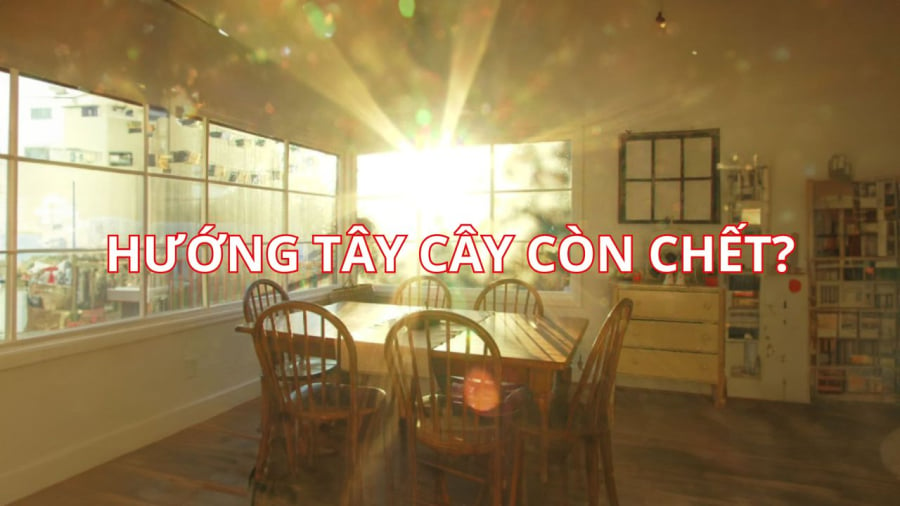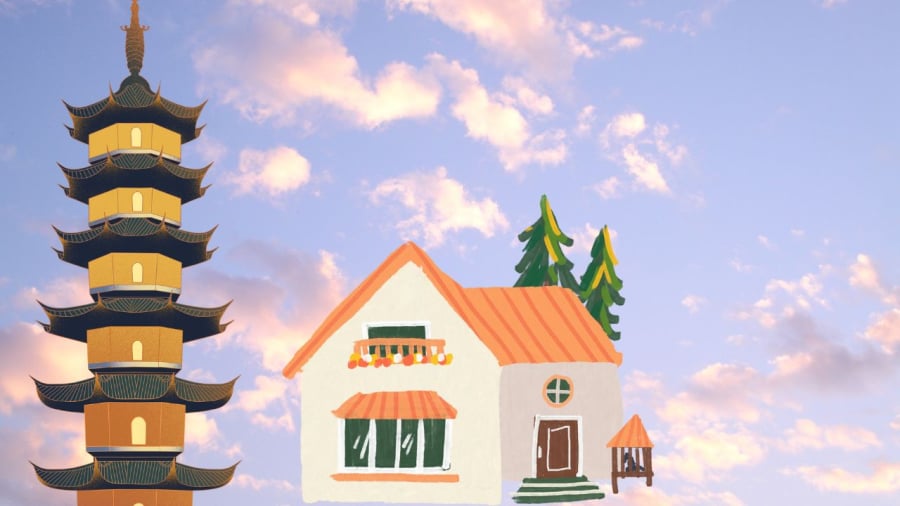Why is it unwise to build a house facing West?
In ancient folk beliefs, even trees would die if the house faced west. The intense afternoon sun would scorch the trees and the thatched roofs of old houses, sometimes even causing fires if the kitchen was nearby. The blazing sun in the evening made the house unbearably hot, and the stuffiness at night made it difficult to sleep, greatly affecting one’s health.
Our ancestors typically built their homes facing south to take advantage of the cool southern breeze and avoid the harsh morning sun from the east and the intense evening sun from the west. They also wanted to shield themselves from the cold northern winds. In those simpler times, people led more basic lives in harmony with nature, without the modern conveniences we have today. As such, building a house facing west was considered unnatural.

The West direction is considered unfavorable due to the intense heat and unfavorable Feng Shui
Furthermore, from a Feng Shui perspective, the west direction represents the setting sun, signifying decline. In contrast, the southern direction is associated with royalty and power. Thus, our ancestors feared building their homes facing west and preferred the southern orientation instead.
Why is it foolish to buy land next to a temple?
If you observe, ancient temples were often located in remote mountain areas or isolated fields. People deliberately chose not to live close to these religious sites, partly because there was ample land to choose from back then, but mainly out of superstition.
Temples are places of religion and spirituality, with daily chants and the constant sound of wooden fish. They are believed to be inhabited not only by gods and Buddhas but also by ghosts and demons. Many wandering souls find refuge in these places. Temples also attract many disciples and are filled with the constant smoke of incense.
Living next to a temple has its inconveniences. Firstly, the constant chants and incense smoke can be bothersome and irritating to some. Secondly, the land around temples is considered sacred, and building a home too close to these areas can disrupt the Feng Shui and bring about negative consequences. Lastly, the spiritual energy of the temple can influence the energy of the homeowners, which some may find unsettling.
Our ancestors believed that humans, being part of the mortal world, should live alongside each other, while religious structures, being part of a different realm, should be kept separate.

Homes near temples are believed to be influenced by strong spiritual energies
What about today?
These beliefs still hold today, but modern lifestyles have led to changes in housing preferences. Many people now live next to temples or own homes facing west.
While everyone desires a south-facing home as our ancestors did, the modern criterion of having the house face the main road often takes precedence. If the main road happens to be oriented towards the west, people will accept a west-facing home to ensure their house faces the road.
Similarly, land adjacent to temples is still sought after, and many families living there thrive. With the growing importance of spirituality, the increased number of visitors to these temples has positively impacted the local economy. However, it is undeniable that living near a temple means constantly hearing chants and the sound of wooden fish, as well as being enveloped in incense smoke. Thus, while our ancestors’ beliefs remain valid, modern considerations have led to a more flexible approach to these superstitions.
This information is based on personal experiences and observations.
































